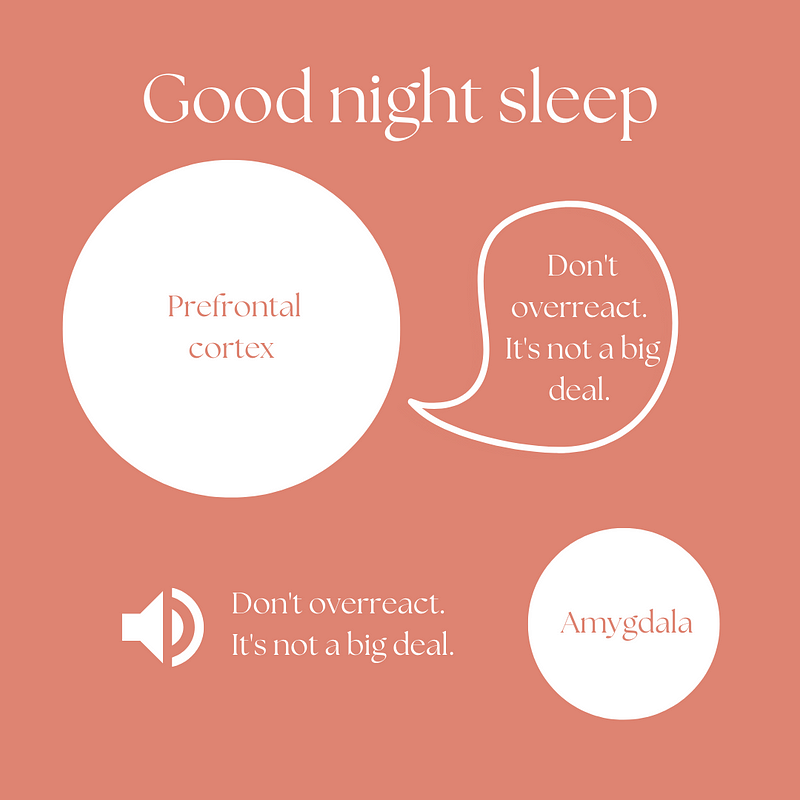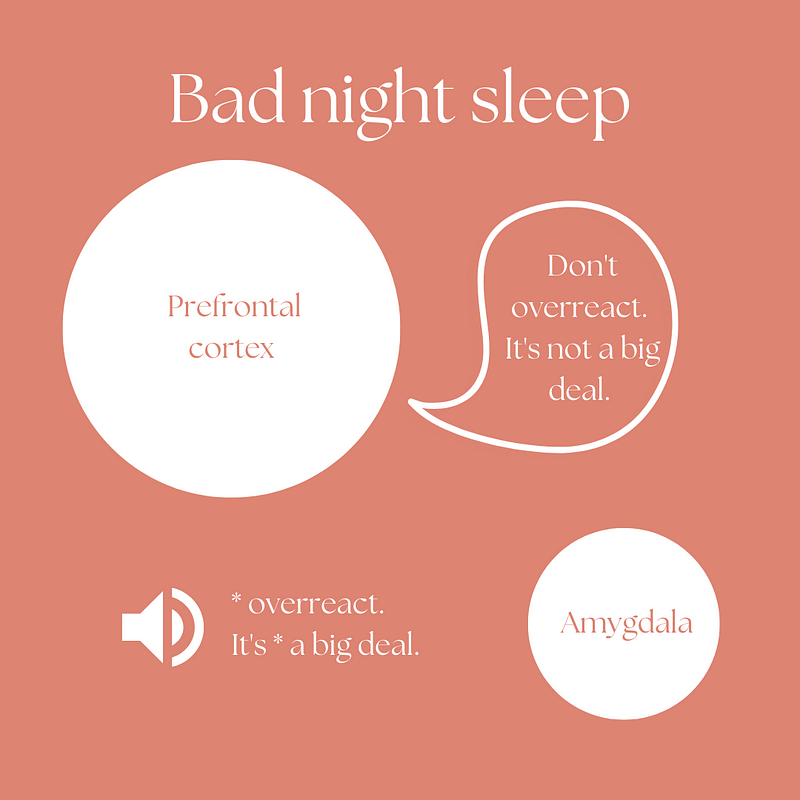Understanding the Intricate Connection Between Sleep and Emotions
Written on
Chapter 1: The Sleep-Emotion Relationship
Have you ever considered your sleep habits? Do you have a consistent bedtime or a nightly routine? When morning arrives, do you feel rejuvenated, or do you immediately reach for your phone? Many of us start our days feeling irritable until we have our breakfast.
It's astonishing how essential sleep is and how easily we neglect its importance. In our twenties, we often invest in skincare to maintain youthful skin, yet we frequently sacrifice sleep, scrolling through our devices late into the night, only to expect to wake up feeling refreshed.
How does sleep work?
Studies indicate that sleep comprises four distinct stages:

Image by the author
- Stage 1 (NREM): This is the initial stage where you drift off to sleep.
- Stage 2 (NREM): Your heart rate slows, and your body temperature decreases as you prepare for deeper sleep.
- Stage 3 (NREM): This is the most restorative phase, making it challenging to wake you up.
- REM Sleep: During this stage, characterized by rapid eye movement, your brain becomes highly active, and this phase significantly impacts your emotional processing.
REM Sleep and Emotional Regulation
In our brains, numerous areas control various functions, but here we will focus on one key area: the amygdala. This small, almond-shaped structure is primarily responsible for processing emotions, especially negative ones such as fear and anger.
During REM sleep, the amygdala becomes active, replaying and storing emotions and triggers experienced throughout the day. As a result, when you awaken, the previous day's frustrations may seem less significant.
You might wonder why this emotional regulation occurs during sleep. The answer lies in the absence of adrenaline, the body's natural alertness hormone. Without adrenaline's influence, the amygdala can process emotions without triggering a stress response, effectively filing away feelings and reactions in a calmer state.
The Role of the Prefrontal Cortex
The prefrontal cortex, often referred to as the "boss," governs the amygdala's functions. After a restorative night of sleep, communication between these two brain regions is seamless, akin to a scenic road trip on a sunny day.

Image by the author
Conversely, when sleep is inadequate or disrupted, this communication falters. The amygdala can become overstimulated, leading to heightened emotional responses, much like navigating a stormy road on a bike with a flat tire.

Image by the author
Tips for Enhancing Sleep Quality
Improving your sleep quality is achievable through several fundamental practices. Here are some essential tips, though individual approaches may vary:
- Establish a Consistent Sleep Schedule: Set regular times for going to bed and waking up to help regulate your body's internal clock.
- Limit Screen Time Before Sleep: Aim to avoid screens at least 30 minutes before bedtime, as they can interfere with your ability to fall asleep by decreasing melatonin production.
- Engage in Relaxing Activities: Depending on your level of tiredness, consider reading or meditating before sleep to help unwind.
My own night routine is simple and effective. Here are some suggestions for creating yours:
- Plan your morning ahead.
- Enjoy a cup of chamomile tea.
- Avoid eating right before bed.
- Find ways to relax, such as reading, gentle stretching, or journaling.
- Minimize bright lights and noise in your bedroom.
- Maintain a comfortable room temperature.
- Refrain from caffeine intake after lunch.
Expert Insights on Morning Clarity
As noted earlier, REM sleep is crucial for processing emotions and information accumulated during the day. Upon waking, your brain has organized a wealth of insights and experiences. It's essential to take time to absorb this information rather than immediately diving into distractions like your phone.
I appreciate your time in reading this article! I'm grateful for the opportunity to share my insights with you and hope you find them beneficial. If you have additional thoughts or experiences on this topic, please feel free to share.
Have a wonderful day!
Chapter 2: Emotional Mastery Through Sleep
In this video, titled "Why You Can't Control Your Emotions With Her & What To Do About It," explore the reasons behind emotional control challenges and strategies to overcome them.
Watch "Robert Greene: It Pays to CONTROL Your Emotions (Brad Carr Clip)" for insights on the importance of emotional regulation and control in daily life.